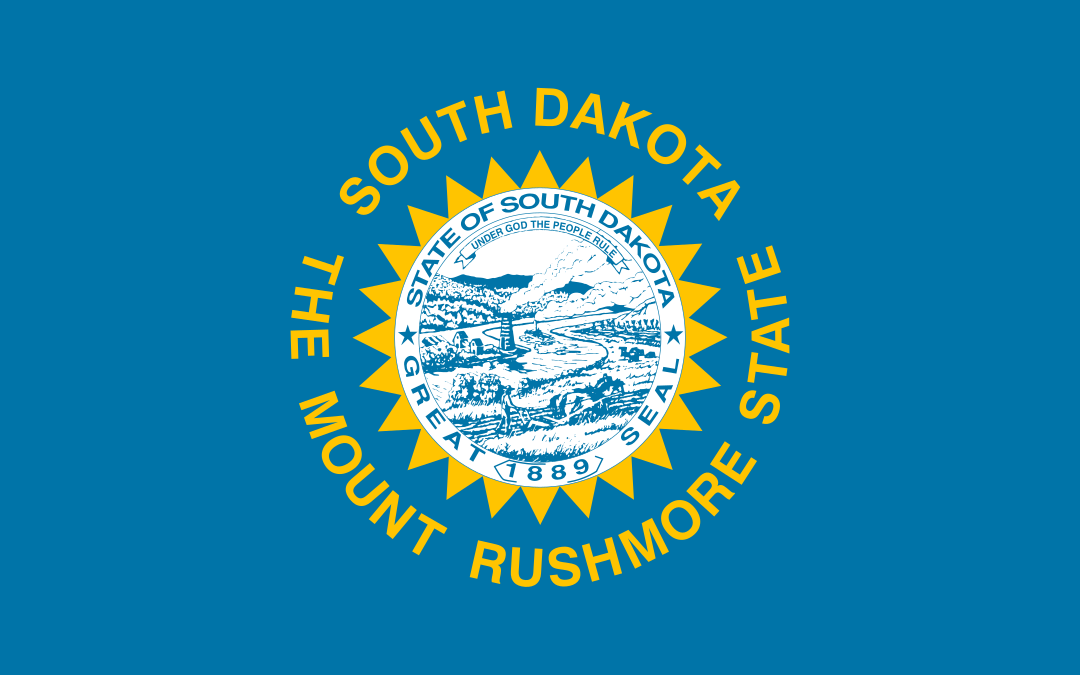In South Dakota, one statewide ballot measure will appear on the June 7 primary ballot. Amendment C would change the vote requirement for future ballot measures, and may impact measures appearing on the ballot this November. Amendment C is the only statewide ballot measure that will appear on the June 7 ballot in South Dakota.
Currently, in South Dakota, a measure that appears on the ballot needs a simple majority vote (50%+1) to be adopted. Amendment C would change this, specifically pertaining to measures that would increase taxes or fees, or that would require the state to appropriate $10 million or more in the first five fiscal years. Instead of requiring a simple majority from voters, Amendment C would change the threshold to a three-fifths (60%) supermajority vote.
The amendment was first introduced by Rep. Jon Hansen (R-25) on Feb. 2, 2021. The measure passed the House on Feb. 16, 2021, with a vote of 56-12. Initially, the measure was set to appear on the November 2022 general election ballot. However, Senate president pro tempore Lee Schoenbeck (R-5) sponsored an amendment to the resolution to instead place it on the June 2022 primary ballot. The Senate passed the amended resolution on March 2, 2021, with a vote of 18-17, and the House concurred on March 4, 2021, with a vote of 51-17. All Democratic legislators voted against the amendment, while the votes among Republicans were split 18-14 in the Senate and 51-10 in the House.
The election date change was debated among legislators and ballot measure campaigns, specifically because the effects of Amendment C would impact another measure set to appear on the November ballot—Constitutional Amendment D, an initiative which would expand Medicaid in South Dakota. Sen. Schoenbeck stated that his motivation to push Amendment C to the June 2022 ballot was specifically due to this Medicaid expansion initiative. “I put it there because I want it to be in place—if the voters approve it—for the general election that’s going to happen because we’re going to have Medicaid expansion there,” Schoenbeck said. “I don’t happen to support more welfare. I want to have a higher threshold for when we vote on that in November. That’s why it’s on the primary ballot. There’s no other reason.”
Dakotans for Health, the campaign supporting Constitutional Amendment D, filed a referendum petition attempting to require Amendment C to appear on the November ballot rather than the June ballot, but Secretary of State Steve Barnett (R) rejected the petition, finding that constitutional amendment resolutions are not subject to referendum petitions.
Americans for Prosperity is the largest donor to the campaign in support of Amendment C, the South Dakotans Against Higher Taxes PAC. Americans for Prosperity has contributed $836,488 in in-kind donations to the PAC, and has stated that Amendment C “will protect South Dakota from tax-and-spend groups who want to use the ballot process to bypass the elected legislature.” South Dakotans Against Higher Taxes has raised a total of $905,988 in contributions.
The campaign in opposition to Amendment C, South Dakotans For Fair Elections, has raised $1.63 million in contributions. Top donors include the National Education Association ($455,960), The Fairness Project ($367,696), Avera Health ($250,000), and Sanford Health ($250,000). Health organizations, such as Sanford Health, have argued that Amendment C could make expanding Medicaid more difficult.
“Medicaid Expansion, for example, is on the general election ballot this November to expand access to care and it would be at significant risk. Requiring a 60% vote to pass a citizen-backed initiative limits the power of South Dakota voters by creating such a high bar,” stated Paul Hanson, president of Sanford Health.
Three states already require a supermajority vote for some ballot measures:
- Washington requires three-fifths (60%) approval from all voters casting a ballot on initiatives or referendums related to gambling.
- Utah requires a two-thirds (66.67%) vote for the approval of any initiatives concerning the taking of wildlife.
- Florida requires a 60% vote for the approval of constitutional amendments, whether citizen-initiated or legislatively referred.
In addition, another state, Arkansas, will vote on a measure requiring a 60% vote to adopt constitutional amendments and citizen-initiated state statutes appearing on their ballot in November.
South Dakota voters will make the decision on Amendment C when they go to the voting booth next Tuesday, June 7. Since 1985, voters in South Dakota have approved 26 legislatively referred constitutional amendments and rejected 26.
Additional reading:


